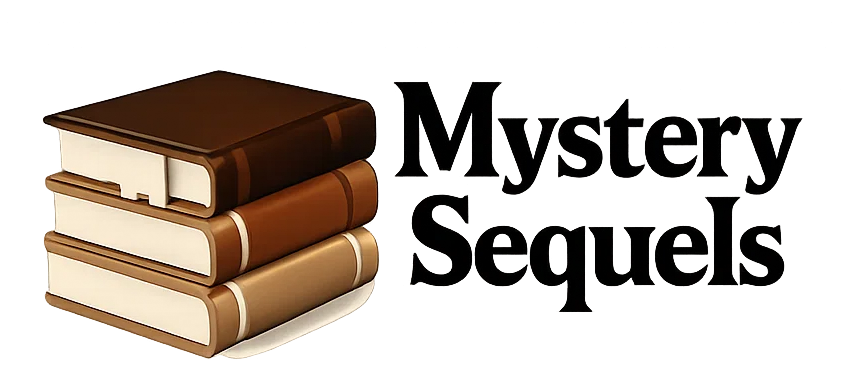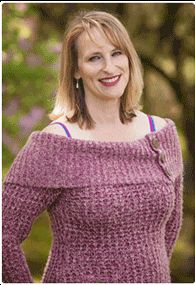Interview With Book Author David Khara
When I first saw The Bleiberg Project by David Khara offered at Netgalley, the blurb made me curious enough to request it. When I finished reading it, I couldn’t wait to get the second book in the Consortium Thriller series, The Shiro Project, however, I soon realized that I did have to wait for a while, as it hasn’t been translated to English yet.
David Khara is a French author and his books are, of course, written in French, followed by their English translation at a later date.
Now that The Shiro Project has also been translated into English, I got a chance to read and review it on Mystery Sequels. Needless to say, I’m hooked on the author’s stories, and I’m patiently waiting for David Khara’s third book in the series, The Morgenstern Project which will be available to purchase next April (while secretly hoping that the 3rd book will not be the last).
In the meantime a got a chance to talk to David Khara on Mystery Sequels about this wonderful thriller series and his writing career. I hope you will enjoy reading this interview as much as I enjoyed hosting it.
 What was your inspiration for writing the Consortium Thriller series?
What was your inspiration for writing the Consortium Thriller series?
I wanted to explore the secrets of World War II, and link the dots between this period and the world as we know it today. I did a lot of research, watched countless documentaries, read biographies and testimonies.
That is how I got my ideas, how I created my plots and how my characters came to life. I wanted the whole series to be a tribute to resistance—not only the Resistance during the war, but also our resistance, as human beings, to our worst instincts.
Eytan, as surprising as it seems, has been inspired by an admirable woman named Simone Lagrange. Please, go read about her, you’ll find tons of info on the Internet. To me, she embodies what my novels are about: the will to live, to survive through barbarism and cruelty…
I was really happy to learn towards the end of The Bleiberg Project that Eytan is the real hero of the book series. Tell us a bit more about Eytan Morg. Why did you choose him as your main character?
Eytan has always been the main character of the trilogy. To tell the truth, when I wrote the first sentence of The Bleiberg Project, I knew exactly what the last sentence of The Morgenstern Project would be (that book is scheduled for release in English in April 2015). It was actually pretty fun to use Jeremy as a false main character and let readers understand that Eytan was the hero of the series by the middle of the first novel.
Eytan is a complex character. In a way, the best friend one could hope for, and at the same time, the worst enemy one could fear to have. I can’t tell too much about him since a lot is said in The Morgenstern Project, but what I like about him is how he lies to everyone, claiming that he is nothing but a killer when, in fact, he is a protector of the innocents, suffering so they would not have to and thus becoming an archetypal hero. With him, you have to judge actions, not words. And I like that, in the novel as in real life. So many people claim things and never keep their word. He does, without caring for himself, without expecting a “thank you.”
In a way The Shiro Project shows that Eytan is a knight, a samurai. Of course, an imaginary one, but it can’t hurt to dream…
What challenges did you face while writing the series?
The most complex part was to merge fiction and reality to a point where almost no one can tell where the truth hides. Also, since I work without any outline or notes, I kept building the story of the characters and their interactions for three years. It turned into an obsession, since I knew sentences pronounced in the first novel would find its explanation in the third novel.
Also, Eytan’s character required a lot of attention since his personality is very complex, and I didn’t want to reveal too much abouthim too soon. So I always had to balance mystery and revelations, which proved to be tricky at times.
We are eagerly waiting for next April when the third book, The Morgenstern Project, will be released in English translation. Will it be the last book in the trilogy?
Writers are liars. I always said there would be three “Projects.” I never said the Consortium thriller series would be a single trilogy. Will there be sequels? Maybe. After all, it depends on whether Eytan survives The Morgenstern Project or not. Wait and see…

If you are working on a new book, can you tell us a bit about it at this time? Will it stick to the thriller genre?
I am working a new thriller, with a funny and romantic background though the main themes are extremely serious. I stopped working on this one to work with a very talented new writer who sent me her novel during this summer. I started reading and kept thinking “This novel is amazing, and she deserves to have a wonderful carrier.” I offered her to work with her on improvements, teaching her what I have learned, and we’ve been going on for three months now.
The novel should be ready any day, and I’m sure it will be a hit. It’s a wonderful story and great writing with a unique voice. And I think the best is yet to come. I’m really proud of her, and it has been an amazing experience dedicating myself to her to fulfill her dream.
Are you a full-time writer?
I am. The success of The Bleiberg Project, and the following novels allowed me to live from my writing. But I try to give as much as I received and I do all I can to promote reading, be it in schools, high schools, libraries or bookstores. I realize how lucky I am, and I also try to help new writers when I sense talent and potential in their novels.
To me, being a full-time successful writer grants more duties than rights.
How do you write – what is your daily writing routine?
My routine has been the same for the last four years. I wake up, drink a terrifyingly strong coffee, then jump in front of my computer and write for three to four hours. Then lunch, sometimes a quick nap, then back to work for another three to four hours. Nothing fancy about it, just discipline and dedication…
Who are your favorite authors?
The French ones are, undoubtedly, Alexandre Dumas and Eugene Sue. Shakespeare is an all-time inspiration for me, Hamlet being my favorite work of all. The funny thing is that I do not read many thrillers. In this genre, Dennis Lehane is my master. The way he uses the codes of mystery thrillers to dig into the human soul is simply amazing and heart-breaking.
In very different fields, I’m also very fond of Anne Rice’s Lestat the Vampire, R.A Salvatore Drizzt Do’Urden character or Tracy and Laura Hickman’s Strad Von Zarovich.
Tell us a bit about yourself – what do you do when you are not writing?
Well, not much since I spend almost all of my time working. I am a pretty ordinary guy. I cycle to avoid putting on weight since writing is a sedentary activity. I play videogames, one of my passions. I take care of my Marvel’s silver age collection. To complete the “geeky” portrait, I am a huge fan of The Big Bang Theory.
One of my favorite pastimes consists of sharing a drink with friends while watching people in the street. I see characters everywhere…
Do you have any tips for aspiring mystery writers?
My main tip is to go on, no matter how many people tell you it is impossible. Just write and keep in mind that people will read your novel eventually. So never forget the pleasure they deserve and ask you if you’d like to read your work too.
Always remember that fame and fortune are not goals, but unexpected consequences. Don’t write to be loved or considered. Tell a story and do it honestly, with your heart, mind, and guts.
Sneaking in one last question (coming from my husband this time). While working at AFP, have you ever visited the AFP office in Cyprus?
Unfortunately not. Actually, I was stuck on a chair in an office, and though it was an interesting experience, I wouldn’t say it was a thrilling one. It taught me a lot about writing and dealing with information, but that’s about all. Also, you must know that my father was a journalist, and though I love him and respect him very much, I needed to walk a different path.
(Note to readers wondering about this strange last question. My husband is in close contact with the AFP office in Cyprus, and when I told him that I’m reading a book by an ex-AFP journalist, he immediately wanted to know if he’s visited Cyprus, the place we currently live in. Most people working at AFP here are either from France or Lebanon).
Thank you so much, David, for participating in this interview. I love your books and I will remain your loyal reader as long as you keep on writing!
To learn more about David Khara and his books, follow this link.






